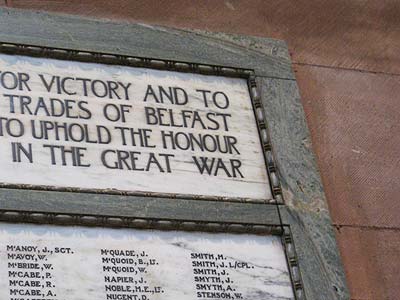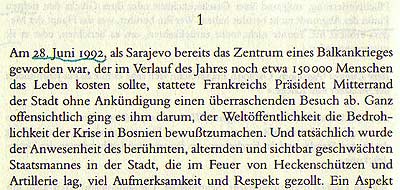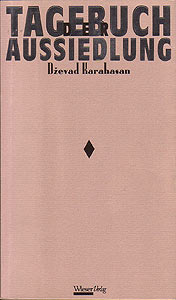| log #182: next code:
crossing This project is dominated by a
couple of younger artists, curator Mirjana Selakov brought together. An important aspect
of this next to last "chapter", which "next code: crossing"
became in my "third book", titled "next code".
| Three generations of artists have been
working on that "third book". The fathers of some of the youngest participants
are my generation. That means, they are not connected the same way to World War I and
World War II. (But some of them to the Jugoslavian War.) |
 |
Why is this important to me and why set
Mirjana a last point to some of those aspects? The 2009-motto of the festival "steirischer
herbst" says "All The Same". It's like contradicting the
basic concept of jingoistic nationalism I grew up with.
So my grandfather, I knew when I've been a child, was part
of the generation of Verdun, my father was part of the generation of Auschwitz and I am
part of the generation of Srebrenica ... the dominant marks of Europe's 20th century
history.
But as this part of "next code"
underlines:
Younger artists I collaborate with are not connected to that "pattern" in the
same way I am. I think I got to move my focus point a little bit for the next decade ...
and for the next "book" of wirk in progress: "the long distance howl".
This will lead over the last "chapter", I call "next codee: asking". But that
takes to look back for a moment. What we Austrians call "World War I",
other people call "The Great War" ... as I saw in Belfast for example:

Essayist Susan Sontag said, the 20th century began and
ended in Sarajevo. The bosnian writer Dzevad Karahasan located it this way:

That means: "Didn't the short 20th century
fundamental happen between two bridges in Sarajevo?" He writes about the "Latin-Bridge",
where Gavrilo Princip shot Franz Ferdinand and his wife Sophie in 1914, and about the "Vrbanja-Bridge",
where Suada Dilberovic and Olga Sucic were killed in 1992.
Historian Eric Hobsbawm opens his book "The Age of
Extremes: A History of the World, 1914-1991", an influential work about "the
short 20th century", with turning the attention on Sarajevo in 1992:

This is about the french president Francoise Mitterand, visiting Sarajevo in June 1992,
while serbian snipers and artillery had taken stand. Katharina Raabe reminds on a moment
in 1993, when the croatian writer Nenad Popovic proclaimed: "Europe dies in
Sarajevo".

The source: "Der erlesene Raum: Literatur im östlichen Mitteleuropa seit 1989"
(Eurozine) by Katharina Raabe. She mentions, that Nenad Popovic published "Tagebuch
der Aussiedlung" ("Sarajevo, Exodus of a City") by Dzevad Karahasan, "an
early literary document from that war".
| Dzevad had some influence on "next
code" ... see for example: "Die Kunst schützt uns vor Gleichgültigkeit" ("Arts protects
us from disinterest"). By the way: We did our first session in october 2001 as
contribution for the "ncc48 - netART community congress": [link] The "net art community congress" turned into a "net
art community CONVENTION".
Now the NCC09 is my
opportunity for the "last chapter" of "next code",
also a reason for inviting Nenad Popovic, who will give us the first lecture of "next code: asking". (See the
background of this part at next code: log #179!)
Nenad Popovic accepted my invitation for the
NCC09 in november. This is related to Dzevad Karahasan's Lecture at the first NCC in 2001. |
 |
[next code: crossing]
core | reset | home
38•09 |